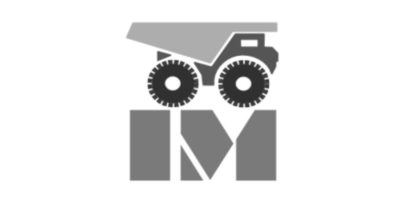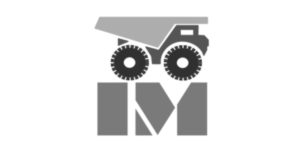- integrity, adequacy and timeliness of the company’s financial reporting and disclosure practices;
- processes for identifying the principal financial risks of the company and reviewing the company’s internal control systems to ensure that they are adequate to ensure fair, complete and accurate financial reporting;
- company’s compliance with legal and regulatory requirements related to financial reporting;
- accounting principles, policies and procedures used by management in determining significant estimates,
- antifraud programs and controls, including management’s identification of fraud risks and implementation of antifraud measures,
- mechanisms for employees to report concerns about accounting policies and financial reporting,
- engagement, independence and performance of the company’s external auditor; and
- internal audit mandate, internal audit plans, internal audit and Sarbanes Oxley (SOX) audit programs and results of internal audits and SOX compliance audits performed by the company’s internal audit department.
Meet at least five times per year. The Committee may ask members of management or others to attend meetings to provide information as necessary.
Meet separately with the Chief Executive Officer and the Chief Financial Officer, senior financial management, the external auditor and the company’s chief audit executive at least four times per year, or more frequently as required, to discuss matters that the Committee or these individuals or groups believe should be discussed privately with the Committee.
Minutes of all meetings of the Committee will be provided to the Board. Written or verbal reports on Committee meetings whose minutes have not been completed will be provided at each meeting of the Board.
Review and assess the adequacy of this Charter and recommend any proposed changes to the Board for approval at least once per year.
Review the appointments of the company’s Chief Financial Officer and any other key financial executives involved in the financial reporting process.
Review with management, the external auditor and the company’s chief audit executive the adequacy and effectiveness of the company’s systems of internal control, the status of management’s implementation of internal audit recommendations and the remediation status of any reported control deficiencies. Particular emphasis will be placed on those deficiencies evaluated as either a significant deficiency or a material weakness, which have been identified as a result of audits and/or during annual controls compliance testing as required under SOX legislation.
Review the company’s process for the CEO and CFO certifications required by the various regulatory agencies in the jurisdictions in which the company operates with respect to the company’s financial statements, disclosures and internal controls, including any significant changes or deficiencies in such controls.
Review with management and the external auditor the annual audited financial statements, management discussion and analysis reports and the annual and interim earnings news releases and recommend their approval by the full Board prior to their release and/or filing with the applicable regulatory agencies.
Review with management and the external auditor the unaudited quarterly financial statements, associated management’s discussion and analysis and interim earnings news releases and approve them on behalf of the Board, prior to their release and/or filing with the applicable regulatory agencies.
As appropriate, review other news releases and reporting documents that include material non-public financial information prior to their public disclosure by filing or distribution of these documents. Such review includes financial matters required to be reported under applicable legal or regulatory requirements, but does not include news releases that contain financial information incidental to the announcement of acquisitions, financings or other transactions.
Ensure that adequate procedures are in place for the review of the company’s public disclosure of financial information extracted or derived from the company’s financial statements, other than the public disclosure referred to in the immediately preceding item, and periodically assess the adequacy of these procedures.
Review the company’s financial reporting and accounting standards and principles and significant changes in such standards or principles or in their application, including key accounting decisions affecting the financial statements, alternatives thereto and the rationale for decisions made.
Review the quality and appropriateness, not just the acceptability, of the accounting policies and the clarity of financial information and disclosure practices adopted by the company, including consideration of the external auditors’ judgments about the quality and appropriateness of the company’s accounting policies. This review shall include discussions with the external auditor without the presence of management.
Review with management, the external auditor and the company’s chief audit executive significant related party transactions and potential conflicts of interest.
To assist the Board with its recommendations to shareholders, recommend (a) the external auditor to be nominated to examine the company’s accounts and financial statements and prepare and issue an auditor’s report on them or perform other audit, review or attest services for the company and (b) the compensation of the external auditor. The Committee has the responsibility to approve all audit engagement terms and fees.
Review with management and the external auditor and approve the annual external audit plan and results of and any problems or difficulties encountered during any external audits and management’s responses thereto.
Receive the reports of the external auditor on completion of the quarterly reviews and the annual audit.
Monitor the independence of the external auditors by reviewing all relationships between the independent auditor and the company and all audit, non-audit and assurance work performed for the company by the independent auditor on at least a quarterly basis. The Committee will receive an annual written confirmation of independence from the external auditor.
Pre-approve all audit, non-audit and assurance services provided by the independent auditor prior to the commencement of any such engagement. The Committee may delegate the responsibility for approving non-audit services to the Chair or another member of the Committee appointed by the Chair where the fee does not exceed $50,000. The Committee will review a summary of all audit, non-audit and assurance work performed for the company at least twice per year.
Review and approve the company’s hiring policies regarding partners, employees and former partners and employees of the present and former external auditor of the company, including:
- the appointment of any employee or former employee of the company’s external auditor to a senior financial management position with the company, and.
- management’s reports of the profiles of all individuals hired during the past year who were employed by the external auditor at any time during the two years prior to being hired by the company.
Review and approve the functions of the company’s Audit and Operational Review Department, including:
- its mandate, authority and organizational reporting lines;
- its annual and longer term internal audit plans, budgets and staffing;
- its performance; and
- the appointment, reassignment or replacement of the company’s chief audit executive.
This review will include discussions with the company’s chief audit executive without the presence of management or the external auditor.
Review the company’s procedures and establish procedures for the Committee for the:
- receipt, retention and resolution of complaints regarding accounting, internal accounting controls, financial disclosure or auditing matters; and
- confidential, anonymous submission by employees regarding questionable accounting, auditing or financial reporting and disclosure matters or violations of the company’s Code of Ethics or associated policies.
Review the adequacy of the company’s bank lines of credit and guidelines for the investment of cash.
Review with senior financial management, the external auditor, the company’s chief audit executive, and such others as the Committee deems appropriate, the results of operational reviews, audits, SOX controls compliance audits and any problems or difficulties encountered during the audits.
With respect to the company’s role as plan sponsor,
- Review and oversee the implementation of the design of the company’s pension plans, the coverage afforded by the plans and changes to the plans.
- Review the funding policies for the company’s defined benefit plans and where appropriate, recommend the Board’s approval of these policies.
- Review the level of the company’s contributions to the company’s defined contribution plans and any proposed changes thereto and where appropriate recommend approval of such changes to the Board.
- Review proposals for the wind-up or partial wind-up of any of the company pension plans, having regard to any collective bargaining and regulatory requirements and making appropriate recommendations in respect thereof to the Board.
With respect to the company’s role as plan administrator
- Oversee and monitor the authority delegated to management’s Executive Pension Committee to administer each of the pension plans in accordance with relevant pension legislation, the terms of the plans and all other requirements of law.
- Review compliance with minimum funding requirements (if any) prescribed by applicable pension legislation and the policies and procedures in place in respect thereof, including requisitioning and reviewing actuarial reports.
- Review and monitor the investment of pension fund assets (in the case of a defined benefit plan), including the policies and procedures in place in respect thereof.
- Review and monitor the sufficiency and appropriateness of the investment choices available to plan members of the defined contribution plans and the company communication and educational materials provided to plan members.
- Review and monitor the performance of the investment managers chosen by management for the company’s pension plans, including the process established for the selection, retention or replacement of any investment manager or advisors.
Advise the Board, either orally or in writing, of any pension-related matters that the Committee believes have or could have a material impact on the financial condition or affairs of the company and/or any of its pension plans and make appropriate recommendations to the Board in respect of matters requiring Board approval.
At each Audit Committee meeting the General Counsel and the company’s chief audit executive shall report any litigation, claim or other contingency that could have a significant effect on the company’s financial results or disclosures and any real or suspected incidents of fraud, theft or violations of the company’s Code of Ethics or associated policies that have been reported to management or to the internal audit department. The Committee shall review any such reports or similar reports submitted by other employees or members of management and if deemed necessary, report such matters related to auditing, accounting and financial reporting and/or disclosure to the full Board.
The Committee shall present to the Board an annual performance evaluation of the effectiveness of the Committee.
The Committee will be provided with copies of the minutes of meetings of management’s Disclosure Committee and the Chair of the Committee or an appointee shall meet at least once per year with management’s Disclosure Committee to review the company’s disclosure controls and procedures.
The Committee will be provided with copies of the minutes of meetings of the Executive Pension Committee.
The Committee shall conduct or authorize investigations into any matter that the Committee believes is within the scope of its responsibilities. The Committee has the authority to (a) retain independent counsel, accountants or other advisors to assist it in the conduct of its investigation, at the expense of the company, (b) set and pay the compensation of any advisors retained by it and (c) communicate directly with the internal and external auditors.
The Chair of the Committee shall report to the Board with respect to the activities and recommendations of the Committee. The minutes of Committee meetings will be made available to the Board.
The Chair of the Committee shall prepare an audit committee report to be included in the company’s annual management proxy circular.
Más información sobre este producto consulte en: http://www.teck.com/Generic.aspx?PAGE=Teck+Site/Responsibility+Pages/Corporate+Governance+Pages/Audit+Committee&portalName=tc


